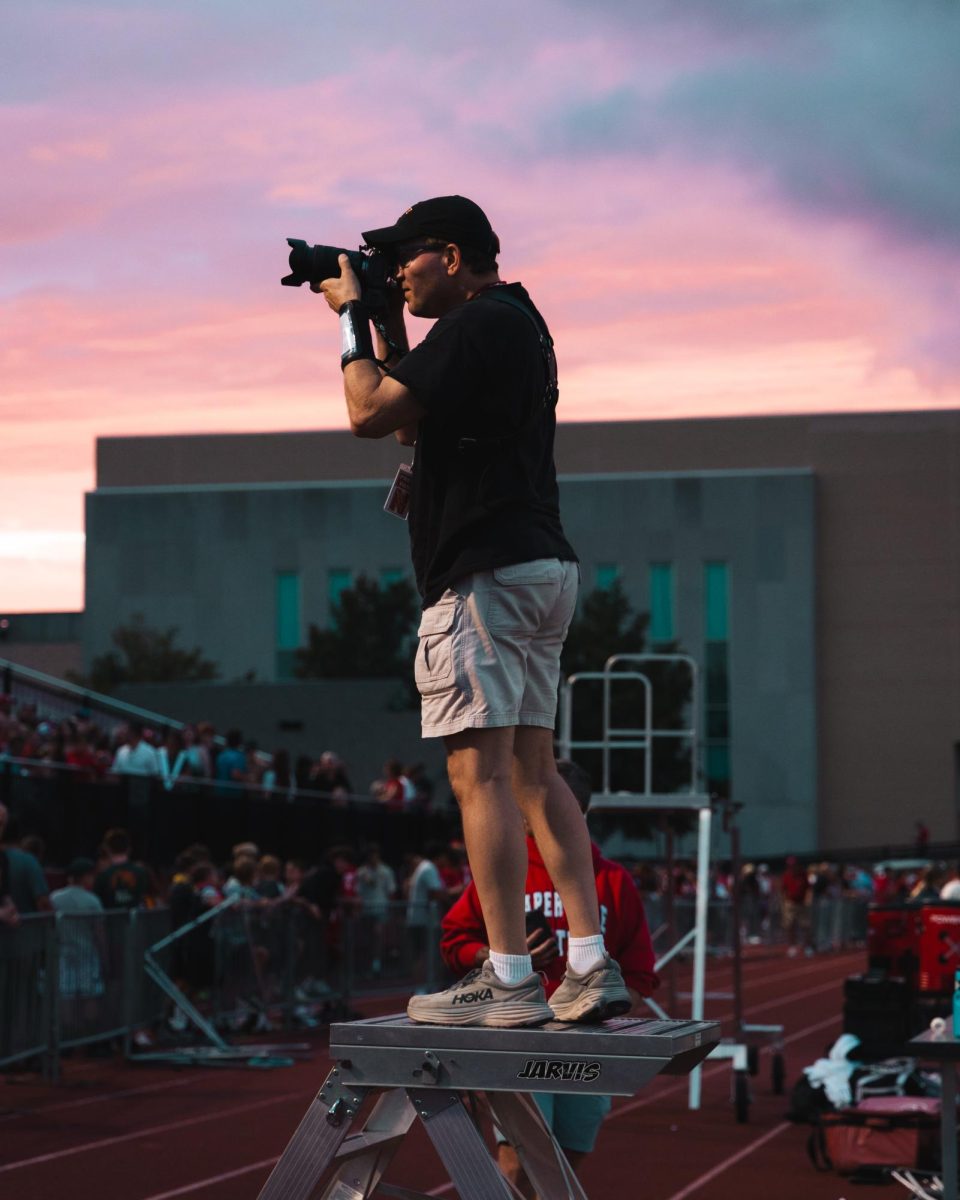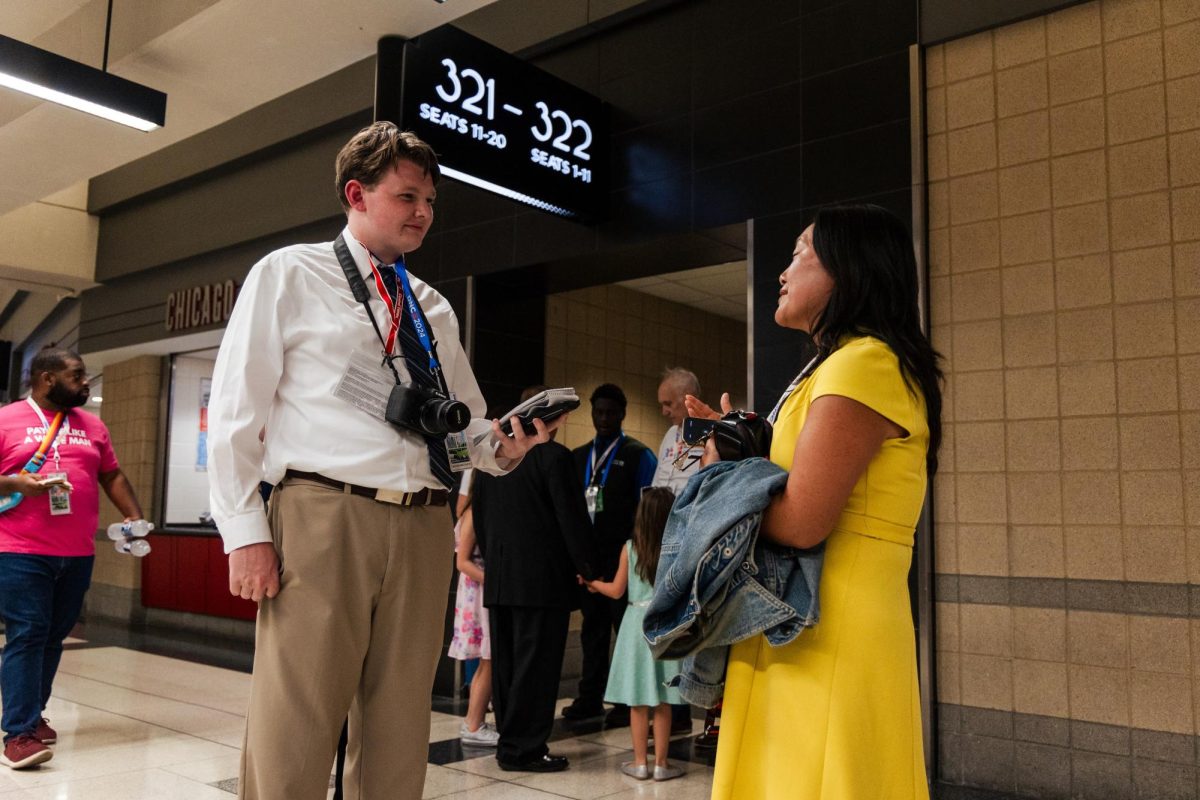Central administration addresses gun incident
October 5, 2017
A Naperville Central student was found in possession of an unloaded handgun on Tuesday. After School Resource Officer Ann Quigley determined that the situation was safe, parents were notified with a Talk203 that was sent out just prior to the end of the school day.
“That was a collaborative decision between me and the district administration,” principal Bill Wiesbrook said. “We all agreed that it was better to acknowledge this incident than for people to learn about it through fragmented or inaccurate bits of information.”
Students were not informed about this incident formally. However, they did receive pieces of information about the incident from their peers and parents.
“Someone [I know] just said they were in Intro to Business and they saw that there were cops holding someone’s arms back,” freshman Claire McIrney said.
A few students also heard about the incident during their sports practices after school.
“I first heard it through my cross country team because I went to practice and everyone was almost joking about how there was a school shooter, [because] there was a kid who brought an unloaded gun,” junior Nicholas Weibel said. “I went home and my parents filled me in […], because they got the email from the principal at about 3 p.m.”
Even assistant principals Jackie Thornton and Carrie McFadden hadn’t heard much about the incident.
“My day yesterday was scheduled every minute from 8:35 a.m. until 3:10 p.m., and I actually also found out through the Talk203,” Thornton said.
According to Wiesbrook, a dean told him about the incident. This dean also notified him that the parents of the student were contacted immediately.
“I’m not going to name the dean, because the deans are by alphabet, and if somebody really wants to disclose who this was, and embarrass that person, and if somebody thinks they know who it is, and if the dean matches with the last name, that might contribute to that,” Wiesbrook said.
The Central Times also talked to dean Mike Stock and Quigley, who were unable to reveal much in order to keep the student’s private information confidential.
Stock said that Central follows the procedures outlined by federal law if a student is found with a weapon on school grounds.
The Naperville Police Department was notified about the incident. More information on disciplinary action can be found on pages 112-114 of the NCHS Redbook.
“It’s a Class 2 felony to have a gun in the school,” Quigley said. “Ninety-five percent of the students here are still juveniles, so it’s handled differently and everything remains confidential.”
According to the Gun Free School Zone Act (GFSZA), which was enacted in 1990, crime involving drugs, guns and criminal gangs requires federal regulation. Federal law defines a school zone as on the grounds of or within 1,000 feet of a public, parochial or private school. The Law Center to Prevent Gun Violence states that this federal law requires schools to expel students who are found with guns.
Another act, called the Gun-Free Schools Act (GFSA), was effective as of 2002, according to the Law Center to Prevent Gun Violence. Unlike the GFSZA, the GFSA focuses on student behavior, penalizing students to deter them from bringing firearms onto school grounds.
The GFSA requires that states that receive certain federal funding require local educational agencies to expel students from school for a minimum period of one year if found with firearms at their school. Although this is not explicitly stated in the Redbook, Central administration reserves the right to report violations to the Naperville Police Department or other law enforcement agencies.
“Bringing a weapon of any sort to school is certainly addressed in our discipline procedures,” Thornton said. “The consequence for that, I would anticipate being expulsion, but every discipline matter is a case-by-case basis.”
Local educational agencies are required to refer these students to the criminal justice or juvenile delinquency system and are also required to provide annual assurance that the local educational agency is in compliance with federal law, according to the Law Center to Prevent Gun Violence.
“As far as police department consequences, it’s juvenile, so it can be handled anywhere from parent-handled to goes to court,” Quigley said. “So it’s kind of a progression of discipline. […] Something this significant is most likely going to end up in court.”
Quigley also investigated a rumor in which a list with student names targeted for harm was circulating around the school.
“That was brought to our attention [Wednesday], looked into, and inaccurate,” Quigley said. “[It’s] kind of sad because it builds up a lot of anxiety for people, and it’s hard to tell people not to talk about it because they’re going to do that anyway, but a lot of times, what’s being talked about is so inaccurate.”
Quigley emphasized the importance of students telling the administration what they know about incidents such as this one.
“Nobody wants to be a snitch,” Quigley said. “[But] if you see something, say something. We rely on a lot of information from students.”









